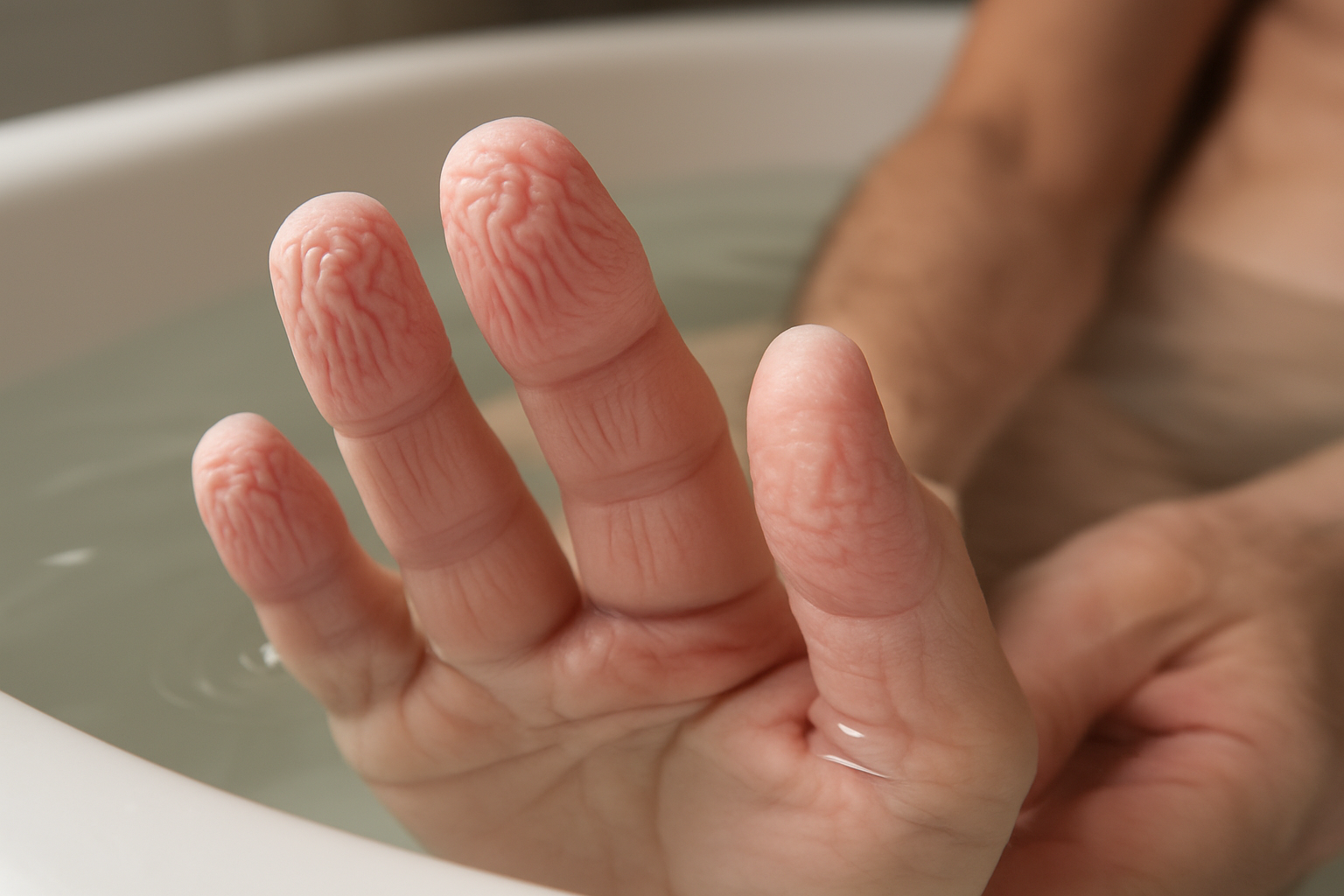Longevity, influence and the social media trap: Who do we trust with our health?
In a world where six-pack abs are flaunted more than six-point health plans, who are we really trusting […]

We have all had the prune-finger experience. A long soak in the bath or a leisurely swim, and suddenly your hands look like they’ve aged 90 years in 20 minutes. But why does this actually happen?
For years, many of us—scientists included—assumed it was just the skin absorbing water and swelling up. As logical as it may sound, it turns out that we have been a little off course.
In an interview with The Conversation, Dr Guy German, associate professor of biomedical engineering at Binghamton University, said, “Often people assume that these wrinkles form because skin absorbs water, which makes it swell up and buckle”.
“To be honest, I did too for a long time,” he added.
In an experiment, Dr German and his team had volunteers soak their fingers for half an hour, mapping the little ridges and valleys that appeared. When the same hands were soaked again 24 hours later, the same wrinkly patterns reappeared.
The culprit? Not waterlogged skin—but our blood vessels, guided by the autonomic nervous system—the same system that keeps our hearts beating and lungs breathing without us giving it a second thought.
“When your hands and feet come into contact with water for more than a few minutes,” explains Dr German, “the sweat ducts in your skin open, allowing water to flow into the skin tissue. This added water decreases the proportion of salt inside the skin.”
Here’s how it gets interesting. Your brain receives a signal from nerve fibres detecting the salt drop, which causes your blood vessels to contract. The skin wrinkles like a grape turning into a raisin when its volume drops but its surface area remains constant.
“It’s like how a dried-out grape becomes a wrinkled raisin – it’s lost more volume than surface area.”
Even more fascinating, the wrinkles tend to appear in the same places each time because blood vessels don’t shift about much.
And for those with nerve damage in their fingers? The study confirmed they don’t wrinkle in water—further proof of the nervous system’s role in this curious phenomenon.
Wrinkled fingers are more than just aesthetic. According to researchers, they actually increase underwater grip, which may make it easier for us to walk or hold objects while immersed.

In a world where six-pack abs are flaunted more than six-point health plans, who are we really trusting […]

In the era of social media, post-COVID, and with mental health at the forefront, a shift is taking […]